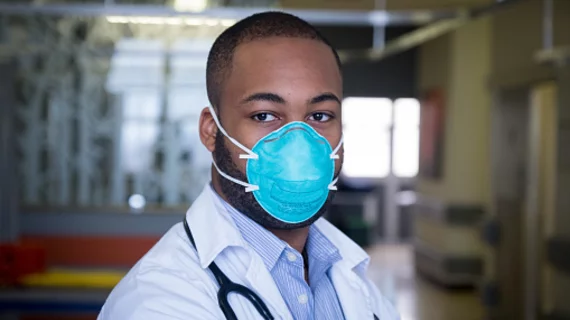Mixed results for healthcare providers pitting AI against COVID
Last year the outlook for healthcare AI was bright enough that investors got behind startups to the tune of almost $2 billion. This year the steam only gathered: More than $630 million rained down in the first quarter alone.
And now the beneficiaries of the largesse are asserting AI’s fitness for the fight against COVID-19. How’s that working from the perspective of healthcare providers?
That all depends on whom you talk to, as reporter Ashley Gold found out when she pursued the story for Kaiser Health News. The article is sufficiently edifying that it’s been picked up by the Los Angeles Times.
Among the sources whose work Gold summarizes is radiologist Albert Hsiao of UC-San Diego Health. He and his team have repurposed an AI system they’d been developing to help diagnose pneumonia on chest x-rays when the pandemic hit. They’ve now used it on more than 6,000 such exams and found it provides “some value,” Hsiao tells Gold.
The institution’s CIO, Christopher Longhurst, MD, MS, is more sanguine.
“The results to date are very encouraging, and we’re not seeing any unintended consequences,” Longhurst says in the article. “Anecdotally, we’re feeling like it’s helpful, not hurtful.”
On the other end of the continuum is cardiologist Eric Topol, MD, the Scripps researcher who has authored numerous bestselling books on healthcare IT.
“AI is being used for things that are questionable right now,” Topol tells Gold.
And right about in the middle is data scientist Eric Perakslis, PhD, of Duke University, a former CIO of the FDA.
His sense is that AI vs. COVID is “a little bit of the good, bad and ugly.”
Click here to read the whole thing.

